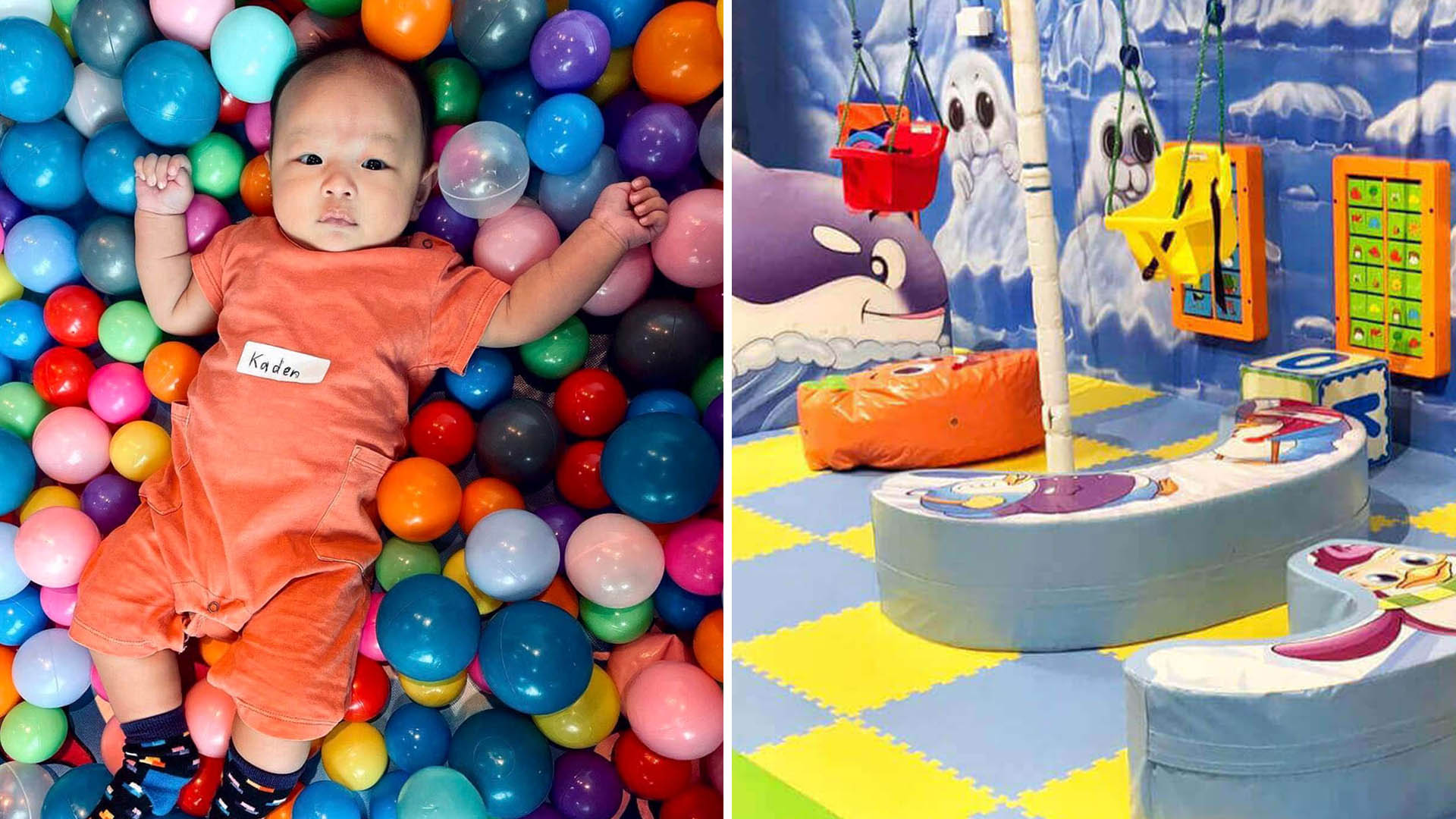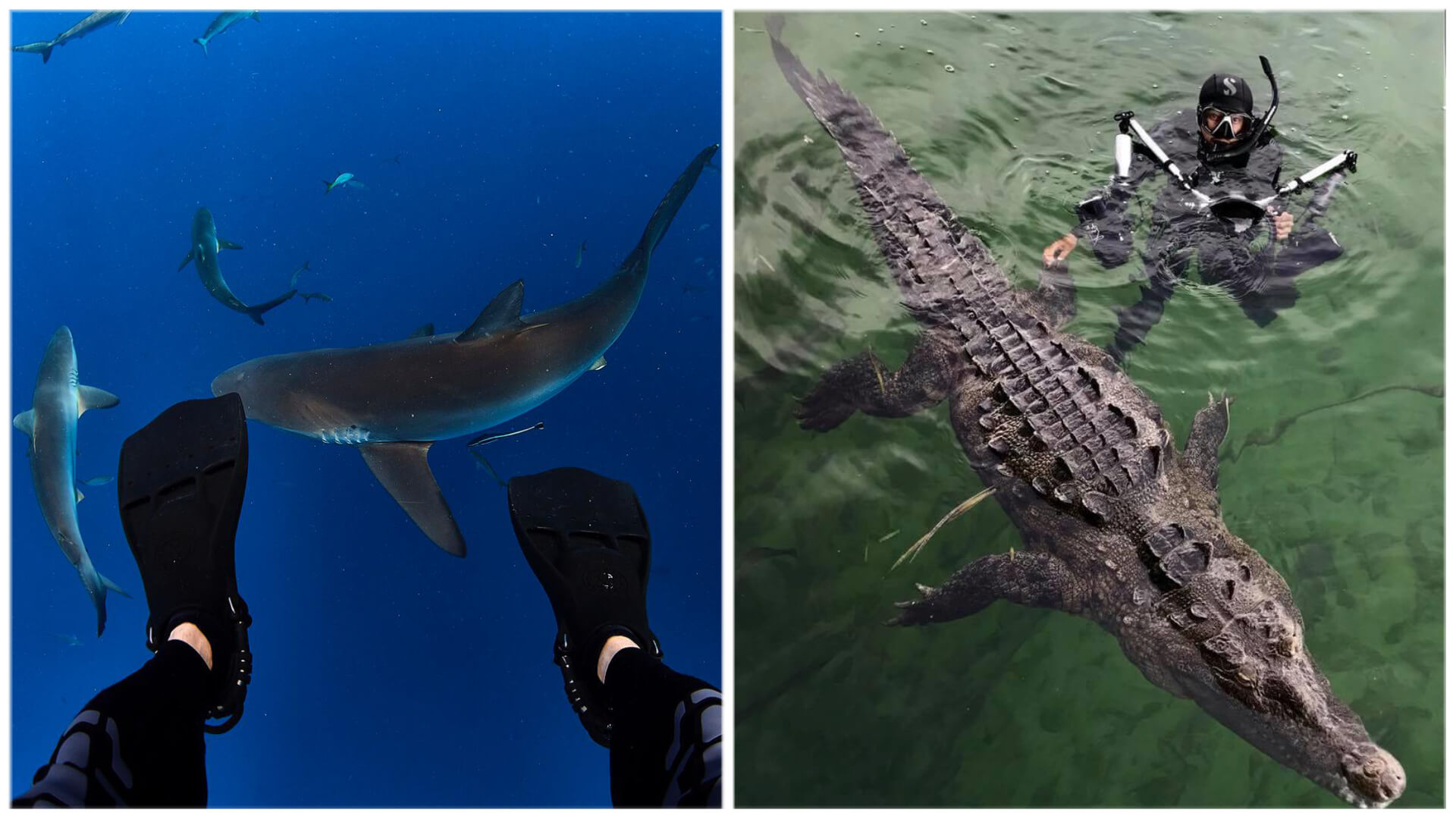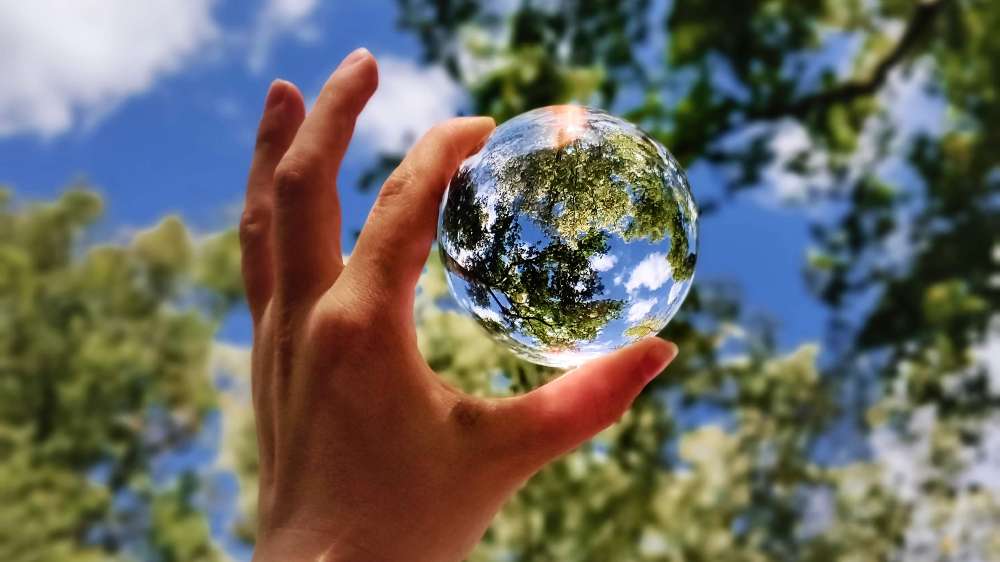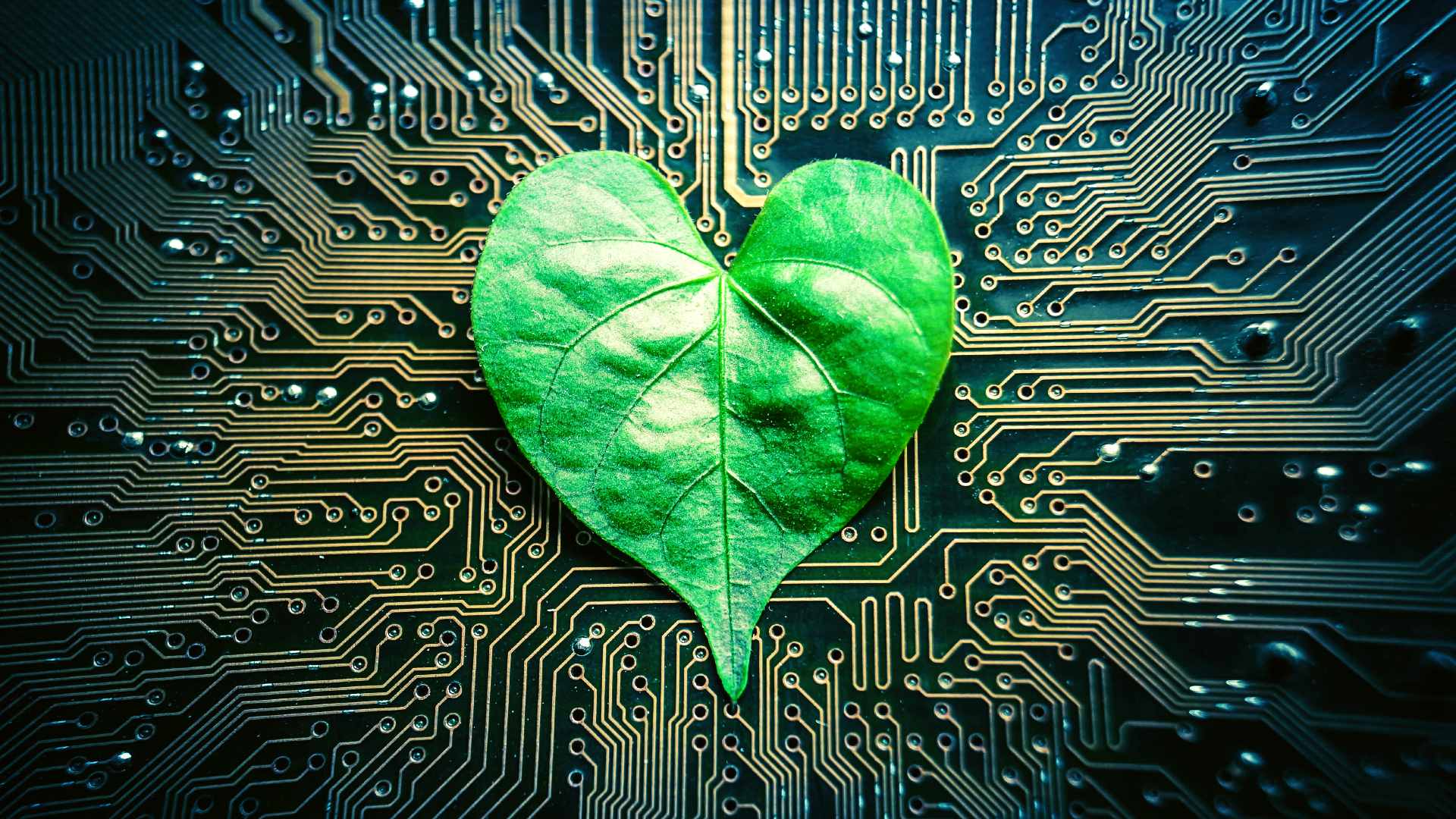World Oceans Day: Education Through Swimming With Sharks (And A Huge Croc)
You may have seen him cooking seafood on Masterchef Singapore, but commercial photographer Aaron Wong's love for the sea extends way beyond the dinner plate to the depths of French Polynesia (one of his favourite dive spots).
To commemorate World Oceans Day (8 June), which is celebrated to remind everyone of the major role the oceans have in everyday life, we speak to Aaron about educating kids as well as uncles and aunties through his experiences with sharks.
Oh, and of course, a big-ass crocodile in Cuba.
You began doing underwater photography in 2002. How did it all start? And what draws you to the ocean?
Before I learnt how to dive, I was already a photographer, so it was a natural progression. As a photographer, you can’t turn (being a photographer) off, so anywhere you go, you always want to shoot something.
With photography or not, I just love the ocean. I love the feeling of being underwater and looking at all the marine life. It’s also the closest you’ll get to weightlessness without having to leave the planet. You literally are Peter Pan underwater. That feeling is very addictive.
71% of the planet is ocean and so little of it has been explored. Curiosity is the thing that drives me to witness the grandeur of nature.
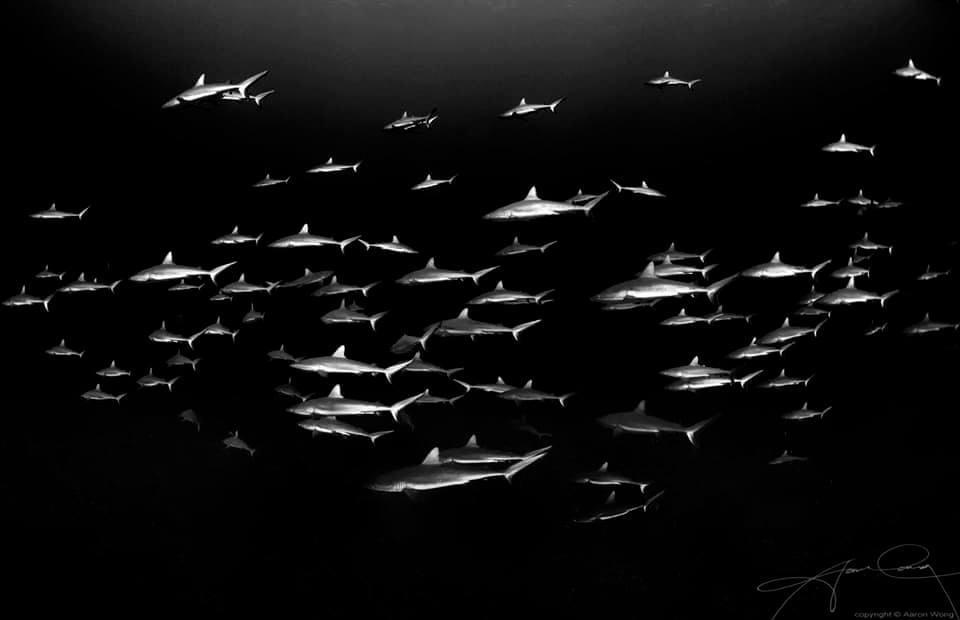
What are some of your most memorable moments in the ocean?
Cannot count leh! (laughs) In French Polynesia, there’s a small little atoll called Fakarava. There’s a channel there, a big drain where the ocean passes through in between tides called Fakarava South Pass. Every July, groupers will congregate here by the thousands to spawn. And because of that, sharks congregate here, too. And that’s where you get the famous wall of 20-30,000 sharks (mostly grey reef and blacktip) that goes on for more than a mile. Visibility is 40m - like swimming pool! You can swim right up to them and you’ll be surrounded by thousands of sharks.
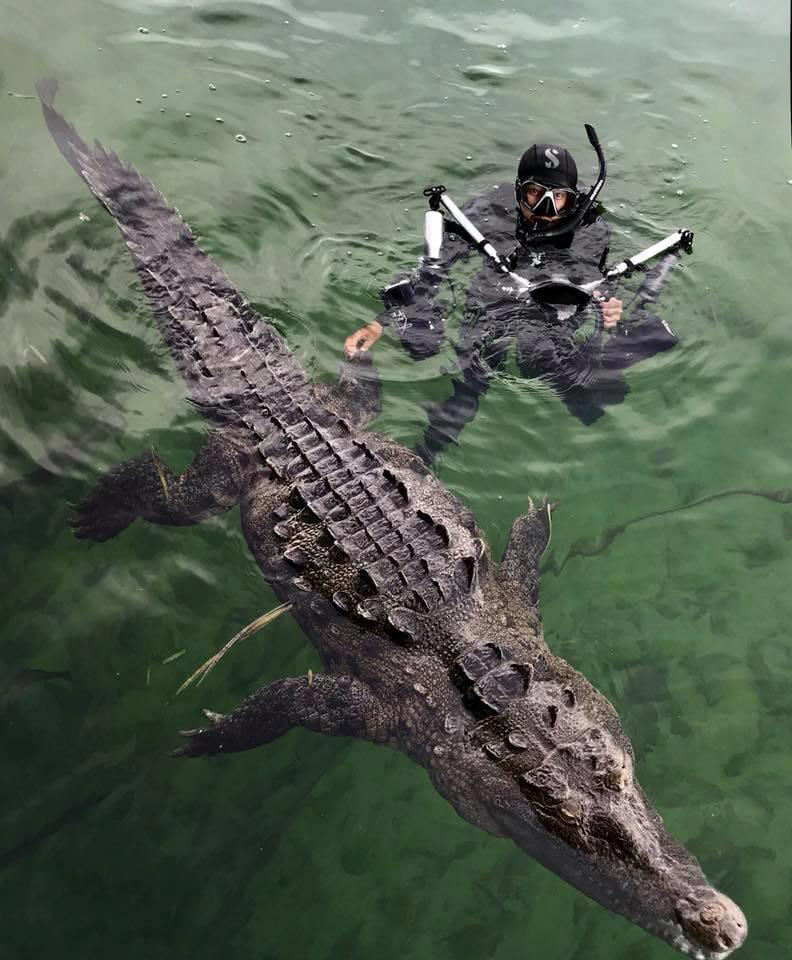
Another memorable moment was diving with the crocodiles in Cuba. I had a local guide and I was in the swamp with him and a 3-4m long saltwater crocodile - a f****** Godzilla! I’ve dived with sharks and I can read them, and the way they move. But you can’t read reptilians. They only move when they need to move. So just to get close to this crocodile was really quite a challenge. I was less than half a foot away from it - I could see the algae on its teeth!
What are some of the most important lessons that the ocean has taught you?
Whether we like it or not, the world depends on the ocean. It governs everything on the planet - from the food that we eat to the water that we drink to the air we breathe. If the ocean systems fail, guarantee 100% there is no way we will survive - that’s a fact.
(American marine biologist) Sylvia Earle famously said: “No water, no life. No blue, no green.” The sad thing is that, as divers, we get to see all the damages first-hand, from pollution to the bleaching of the corals, trawling, illegal fishing, all kinds of bad stuff that people do to the ocean.
Whether people love the ocean or not, they need to understand that we all depend on it. The ones who love the ocean already know - you don’t have to preach to them. It’s people like my parents - the uncle, ah pek, aunty - they will not understand, so the best way to explain to them is “no blue, no green”.
For the younger people, the first word that comes to mind is “education”. Give them information to make informed decisions and choices. I give a lot of talks in secondary schools mainly about sharks because I have a lot of experience dealing with them. And we all know how the marine food pyramid works, right? Sharks are the apex predator. You take them out, everything will fall. That’s why I focus on sharks, not only because I like them but because they’re the keystone predator of the ocean, and we’re taking them out of the ocean faster than they can reproduce.
For the millennials, I try to reach out to them through campaigns like FINished with Fins. Any time I can slide in some message, I will. This group is quite informed, but it’s about whether they make the decision to act on it. For instance, they understand plastic pollution, but do they recycle? No, because it’s too much of a hassle. That’s the stumbling block to how we can make things happen.
You started the FINished with Fins campaign in 2012. What kind of impact have you created with it in the past 8 years?
I don’t want to take credit and say the change has been because of us, because the truth is, there’ve been a lot of campaigns about shark awareness all over the world - WWF (World Wildlife Fund), WildAid, SOS (Save Our Sharks). So it’s a collective thing. But I will say that FINished With Fins is one of the biggest international shark awareness campaigns in the world.
I started it because, back in the day, most of these shark awareness campaigns incorporated pictures of dead sharks or sharks with their fins cut off. I come from the world of advertising, and in advertising, this is 101 Failure. Number one, you don’t show gore - people will turn away from it; they don’t want to deal with it. Number two, you’re putting it in all these diving magazines, Nat Geo, Discovery Channel. People who watch these channels are probably aware already. You’re not preaching to the right group of people. That would be people like my parents, all the aunty uncle who don’t care.
In advertising, what sells is beauty and sex. You can’t sell sex with this one, so you have to sell beauty. The aunty might not care about sharks. But when the aunty sees Zoe Tay, she will say, oh, I know Zoe Tay. And she might say, if Zoe Tay doesn’t do it, why she doesn’t do it huh?
Since the campaign started, I’ve read that there’s been a decline of 70% of exports of shark fin worldwide. But again, I believe it’s not a one-campaign effort, it’s the collective effort of a lot of people around the world.
Normally, you go diving almost every month. What's the first place you're going once wew can start travelling again?
I want to go back to the Solomon Islands or French Polynesia. In the meantime, the only way to keep sane is to look at my old pictures!
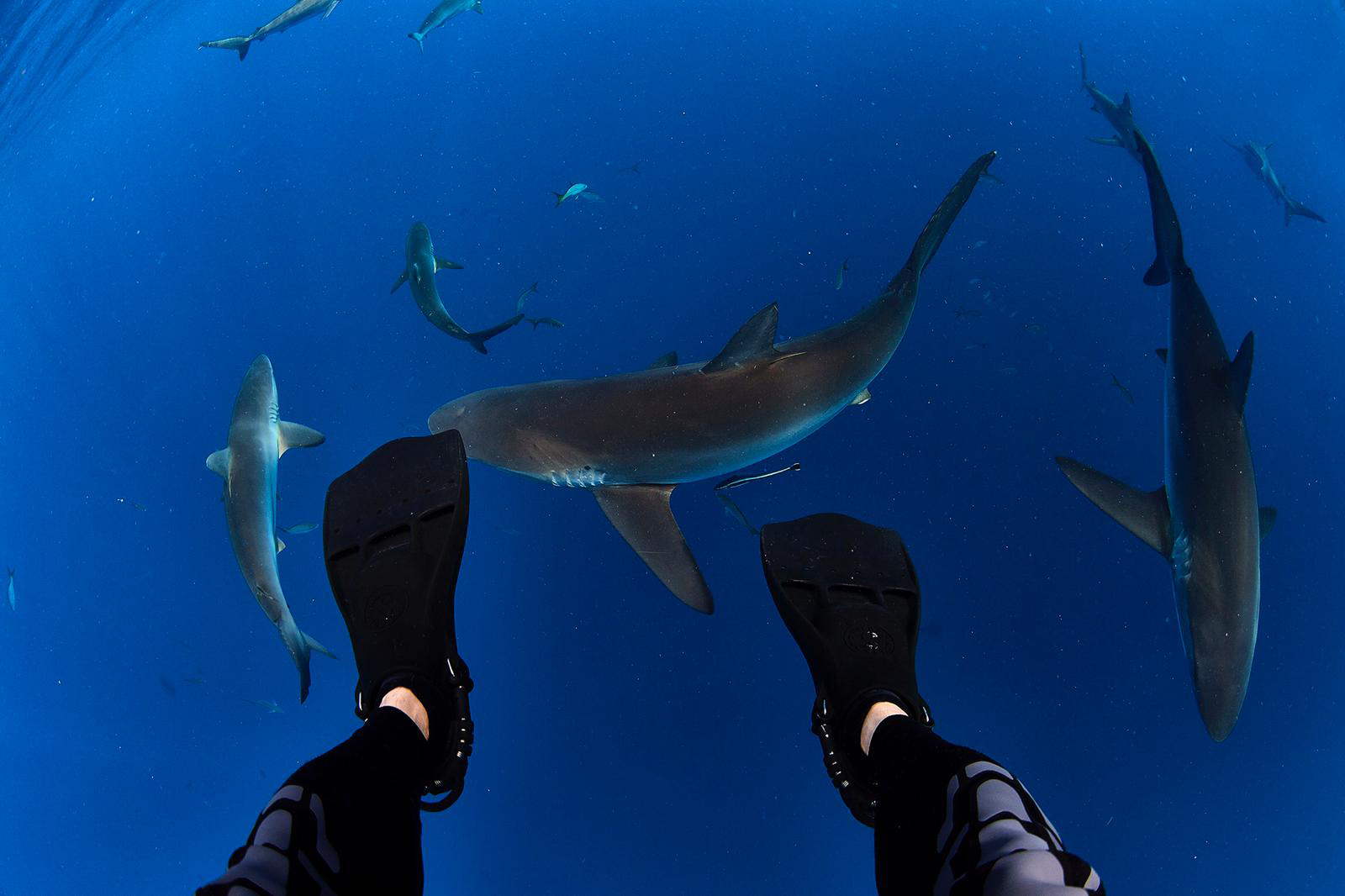
For the latest updates on Wonderwall.sg, be sure to follow us on Facebook and Instagram. If you have a story idea for us, email us at [email protected].

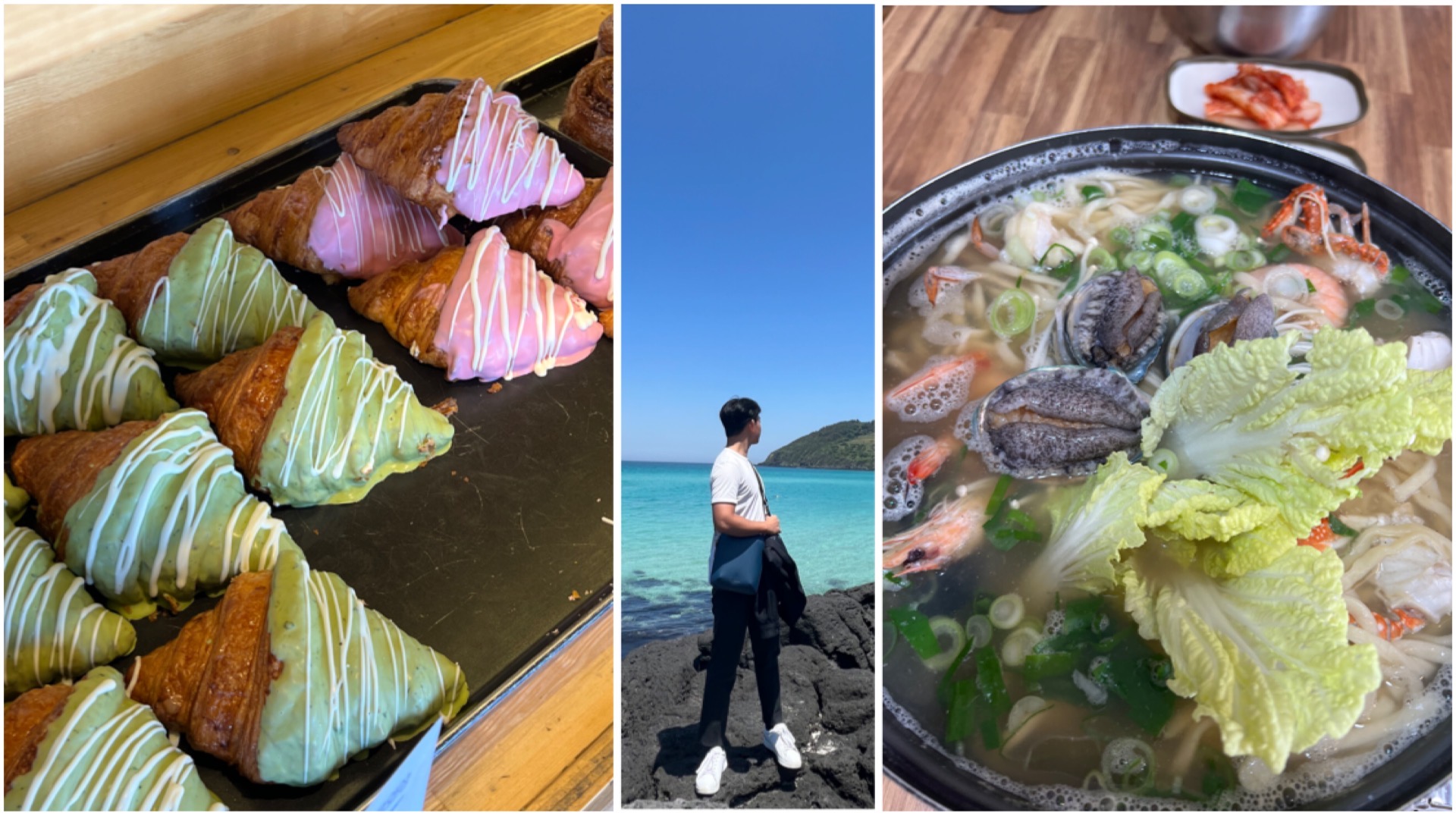
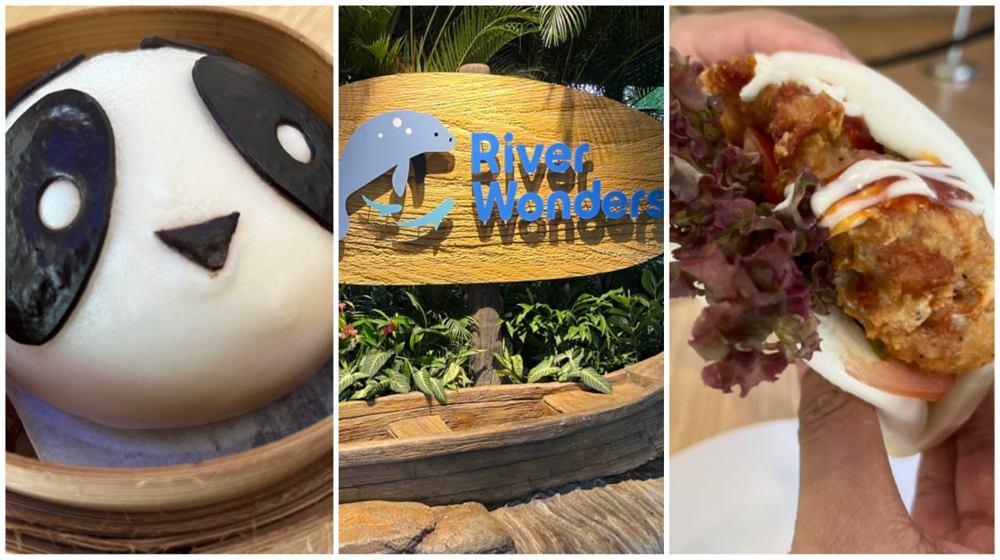
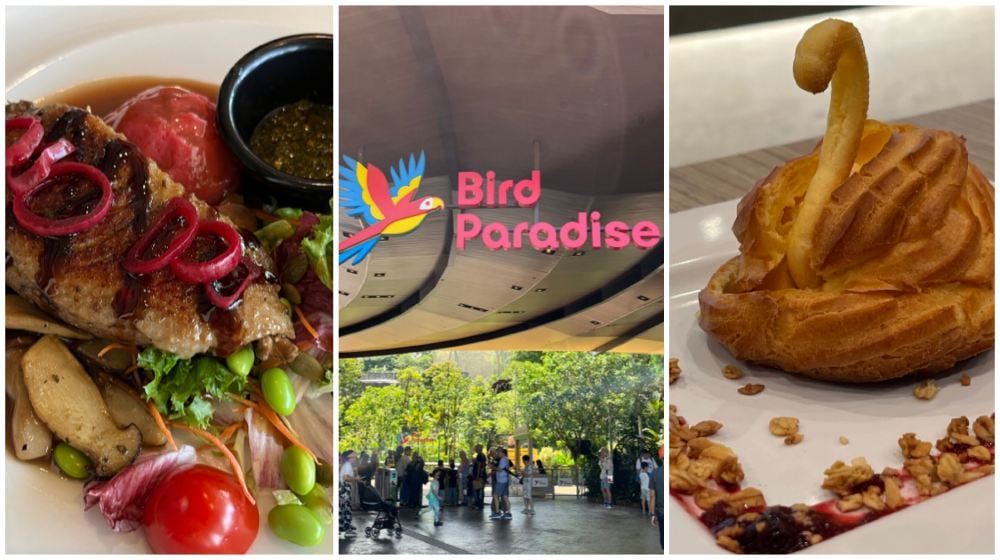

/roundup_19_april_2024_rectangle.jpg?sfvrsn=898f23d7_1)
